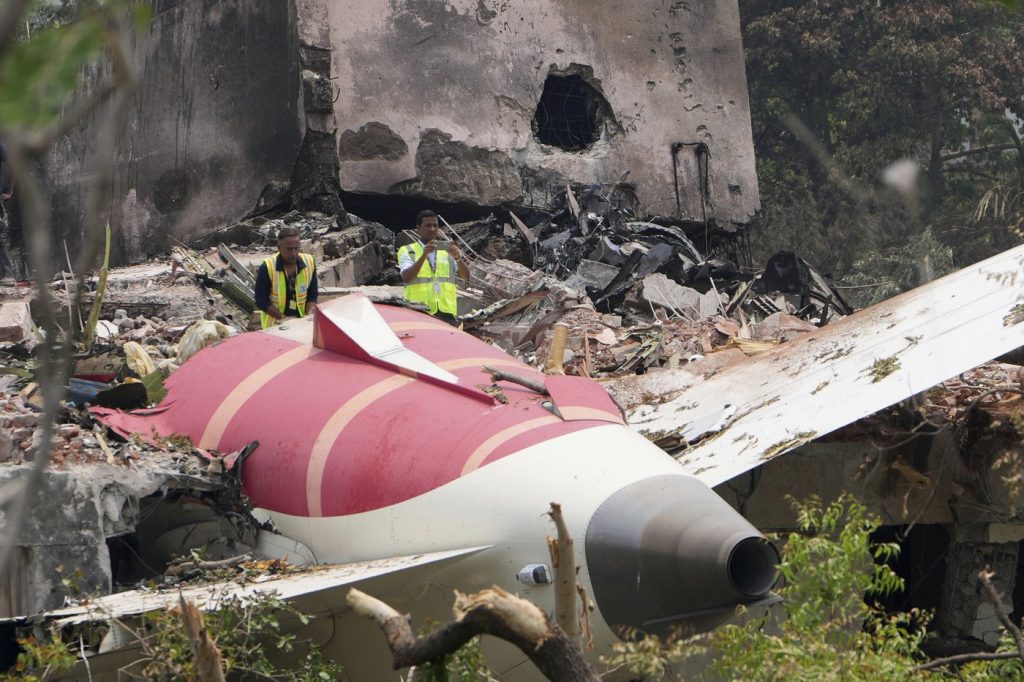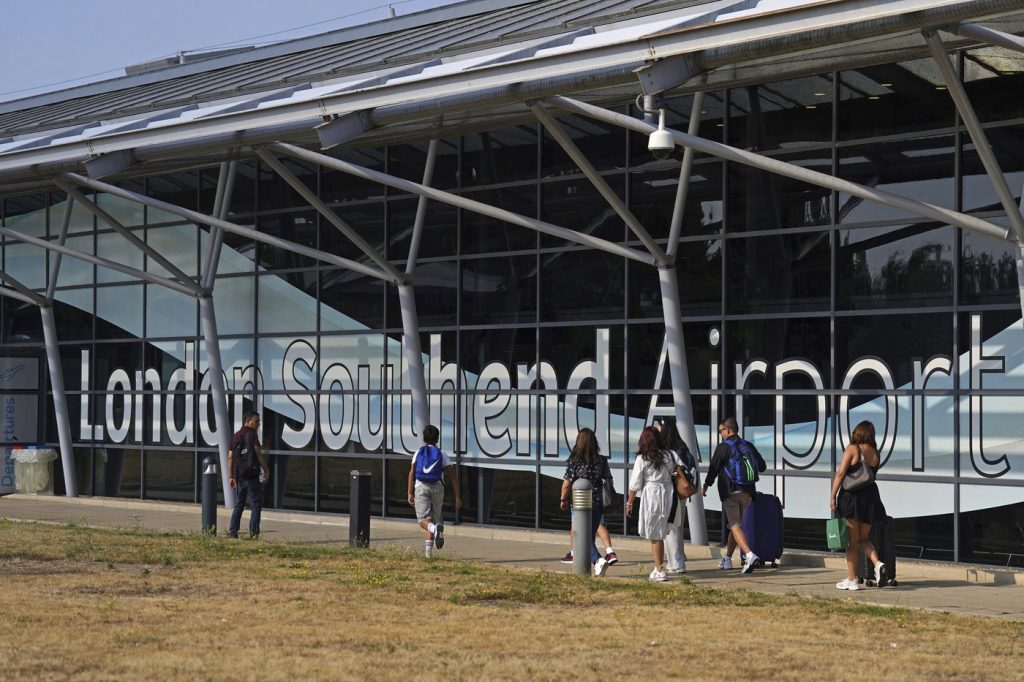NEW DELHI (AP) – A preliminary investigation report released on Saturday has revealed critical details about the tragic Air India flight crash that occurred on June 12 in Ahmedabad. The report indicates that fuel control switches for the engines were moved to the "cutoff" position moments before impact, resulting in both engines being starved of fuel and leading to a catastrophic loss of power shortly after takeoff.
The report, compiled by India's Aircraft Accident Investigation Bureau, highlights confusion among the flight's pilots regarding the switch settings, which ultimately contributed to the crash. The Boeing 787-8 Dreamliner had 230 passengers on board, composed of 169 Indians, 53 British, seven Portuguese, and a Canadian, alongside 12 crew members. The tragic event claimed at least 260 lives, including 19 individuals on the ground, making it one of India's worst aviation disasters. Only one passenger survived the incident, which lasted about 30 seconds from takeoff to impact.
According to the investigation, the flight experienced a critical malfunction shortly after liftoff. As the aircraft achieved its maximum recorded speed, both Engine 1 and Engine 2 fuel cutoff switches transitioned from the "run" position to "cutoff" almost simultaneously. The investigation has yet to determine how these crucial switches were inadvertently altered during the flight. Following this switch change, there was a desperate attempt by the cockpit crew to revert the switches back to the "run" position, but by then, the aircraft had already begun to lose altitude and could not regain sufficient power to avert the crash.
In the dire moments leading up to the crash, one of the pilots transmitted a distress signal, repeating "MAYDAY MAYDAY MAYDAY." An aviation expert and former airline pilot, Terry Tozer, expressed astonishment over the switch change occurring so soon after takeoff, stating that the low altitude at the time of the incident left the engines with insufficient time for recovery. The cockpit voice recorder captured a moment of confusion where one pilot questioned why the fuel was cut off, to which the other pilot replied that he was not responsible for the action.
The preliminary report did not attribute any recommendations to Boeing, whose spokesperson stated that the company was prepared to assist with the ongoing investigation led by India's Aircraft Accident Investigation Bureau. Boeing extended its condolences to the victims' families and acknowledged the tragic impact of the incident on the community in Ahmedabad.
India's civil aviation minister, Kinjarapu Ram Mohan Naidu, advised caution regarding the report's conclusions, emphasizing that it serves as a preliminary finding and urging stakeholders to wait for the final report to avoid premature judgments. Air India assured that it is fully cooperating with all authorities in the investigation process, working closely with regulators and the Aircraft Accident Investigation Bureau as they navigate the ongoing inquiry.
The black boxes from the flight, which include both cockpit voice recorders and flight data recorders, were recovered in the aftermath of the crash and have been successfully downloaded in India. To prevent similar incidents in the future, Indian authorities have ordered thorough inspections of Air India's entire fleet of 33 Boeing 787 Dreamliners.












